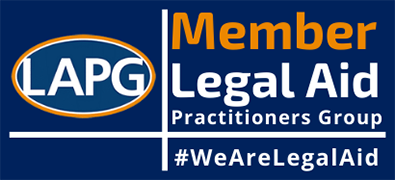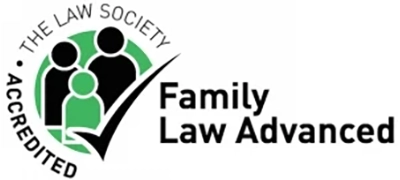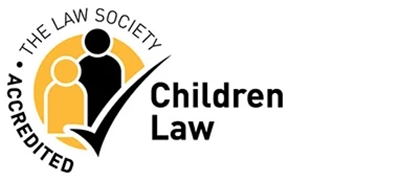Susan Ellingham interviews Robin Gretenkort Children & Families Worker for SAFE
How did you come to work for SAFE?
I grew up in Germany. I’ve always been interested in education and young people. Since the age of 16 I have volunteered and been involved in youth organisations.
My interest in education led me to undertake Education Studies as a degree then a Master’s degree of Education at Exeter University. I have always wanted to work with children and young people and enable them to develop as they wish. Children who have experienced domestic abuse are often confused about what happened, struggle to understand and control their emotions and maintaining safe and healthy relationships, which has a massive impact on their development and their future.
After my Masters I worked for the Devon Safeguarding Children Board, and found out about the important work that SAFE does in Devon. I was very keen to get involved when I heard that SAFE were recruiting for a Children & Families Worker.
Are you like a lot of your colleagues and on a fixed term contract?
Yes, I’m on a fixed term of 12 months. If funding remains available to SAFE I’ll hopefully be able to stay for longer.
What does your role as a Children & Families Worker entail?
I work with children and young people aged between 5 and 17 years of age who have experienced domestic violence or abuse in some form in their life.
I provide one to one therapeutic support for the child, normally at school. The first couple of sessions are usually spent getting to know the child. Some children need more time to build up trust before they will engage with the sessions. Sessions are usually led by the child, and it is important for the children to know that what we talk about is confidential and they are in control of what they want to talk about. The sessions give them an opportunity to explore their emotions and talk about things that worry them or make them feel unsafe.
The main person I support is the child on a one to one basis. Each child’s needs are different. My role is to assist their recovery. I adopt my approach depending on age and background of the child. I work with a child for between 6 and 8 months depending on the child’s needs. Sometimes I will work with a child for longer.
I try to see the child at least fortnightly. Some however need weekly visits, some need more time between visits. Sometimes the child needs time alone without professionals if they have a lot of professionals in their life. I always make sure that the child knows they can contact me if they wish to and if they want to see me sooner than the next scheduled visit they can ask their teacher or parent to arrange it.
The sessions between me and the child are confidential, unless any safeguarding issues emerge. However, sometimes it is helpful for parents to be aware of some of the things we discuss, in which case I will ask if the child is happy if I talk to their parent about this. I also support the mother around managing the child’s behaviour, how she can help facilitate recovery and how to best talk to the child about their experiences. I can work with the mum and child to help rebuild their relationship which needs direct intervention. I will do separate work with each of them before working with them together. I also sometimes provide support to mum around contact between their child and the father, which can be a cause of anxiety for both mum and child. If I believe the mother needs other services i.e. Pattern Changing, I will refer her to that service. Mothers are all different in how they wish to work with me. Some phone me about issues that they have arisen. I try to keep open communication. The support I give to the mother is confidential too. I’ve only worked with mums so far, but I can also work with dads if they are a victim of domestic violence.
I will give advice over the phone and give reassurance to parents; as often the mother’s confidence has been knocked, I will reassure them that what they are doing is correct. The mother may have been told by their ex-partner that they are rubbish. I remind the mother to take care of themselves as well as their child. The parent may often feel guilty for not ending the abusive relationship sooner – they then put all energies in their child and don’t take time for themselves.
Sometimes a child will feel that they have been labelled as a trouble maker at school therefore they feel unable to seek support. I therefore help rebuild the relationship between the school and the child.
What has given you the knowledge and skills base to do the work that you do?
I think that the voluntary work I did with young people from different backgrounds has prepared me well for this role. I find it easy to talk to young people from a variety of backgrounds; my studies made me aware of child development, learning and motivational theories, which has been very helpful in understanding what is going on for the child and how to best engage them to facilitate recovery.
I have also received specialist training over the last two years through the Devon Safeguarding Children Board and SAFE, and I continue to receive specialist training in different areas of support, such as how to support male victims of domestic abuse and being trained in specialist intervention programmes for children.
Where do the referrals come from?
Most referrals come from schools. Other referrals are received from social care, intervention teams, Children’s Centres or parents. It depends whom the family is working with. If the parent has been involved in our Pattern Change course, they may then refer their child to us.
Schools will sometimes refer a child to us due to certain behaviours displayed at home or at school or due to the background history supplied by their mother. The parent and child must consent to the referral. The schools are happy to co-operate with one to one sessions. I tend to see children at different times in the school week so that they do not miss the same lesson. Some schools and children prefer the same time and day.
How many hours do you work?
I work full time, five days per week, I have some flexibility to start early or finish late, which usually depends on how I can fit visits or other meetings into my day. There are two of us at SAFE who work full time as Children & Young Person’s workers. There are also four part-time workers.
Do you have a typical day/week?
There is not really a typical day or week. I work Monday to Friday. On a Monday morning I will turn on my work phone and check messages for weekend calls. My week will be filled with a mixture of visits, planned one to one; child in need meetings and child protection meetings.
What is your role at the child in need/child protection meetings?
I give details of the activities and work I have been doing with the child in general terms and I can express the child’s voice if they wish me to. The child knows that I am attending the meeting, so they may tell me of any problems they have, like they are struggling at school with other professionals. I will advocate for the child and the mother at meetings and make sure that professionals working with the family are aware of the impact of domestic abuse.
Need some advice? Get in touch today
"*" indicates required fields
The information submitted here is used and stored for the purpose of replying to the enquiry. For more information on how we process data please visit our Privacy Policy.









